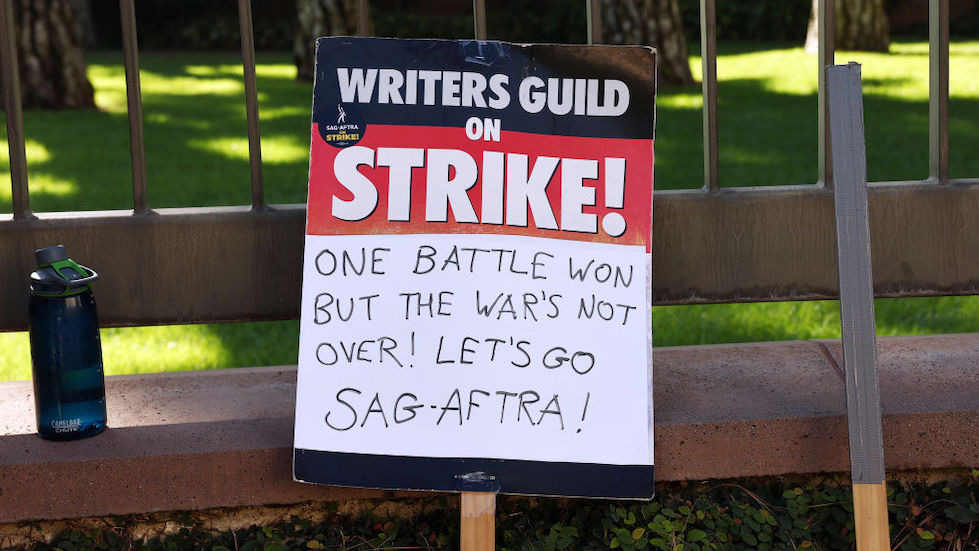Writers Guild Board Votes To End Strike While Agreement Is Ratified
Writers get streaming viewership bonus, AI protections

The smarter way to stay on top of broadcasting and cable industry. Sign up below
You are now subscribed
Your newsletter sign-up was successful
The Writers Guild of America said its leadership voted unanimously to end its strike as of 12:01 a.m. PT on Wednesday, allowing writers to return to work while the agreement with the studios is being ratified.
The WGA West Board and the WGA East Council also voted unanimously to recommend the agreement to union members, who will vote on the proposed deal from October 2-9.
The Guild released the proposed contract terms.
The agreement would run from September 25, 2023 through May 1, 2026.
The pact calls for most pay minimums to increase by 5% upon ratification, with another 4% increase coming on May 2, 2024 and a 3.5% bump on May 2, 2025.
Screenwriters’ terms have been improved, with a second step guaranteed when a writer is hired for a first draft screenplay for 200% of the minimum or less.
Screenwriters hired on a flat-deal basis for 200% of minimum or less must be paid 50% of the fee on commencement.
The smarter way to stay on top of broadcasting and cable industry. Sign up below
When a feature-length project is made for streaming with a budget of $30 million or more, the minimum initial compensation for a story and teleplay is $100,000 (up 18% from the current rate) and a 26% increase in the residual base. Combined with the foreign residual improvements described below, this results in a 3-year residual of $216,000 for projects on the largest services, a 49% increase from $144,993 under the 2020 MBA.
The deal also calls for increased foreign streaming residuals and a viewership-based streaming bonus. Netflix’s three-year foreign residual will increase from $18,684 for a one-hour episode to $32,830, the WGA said.
Steaming services also agree to provide the guild with the number of hours streamed for streaming programs.
In terms of artificial intelligence, the agreement says AI can’t write or rewrite literary material and that AI-generated material will not be considered source material. That means AI-generated material can’t be used to undermine a writer’s credit.
A writer can choose to use AI when performing writing services, but the company cannot require a writer to use AI software when performing writing services.
Studios must disclose to the writer if any materials given to the writer have been generated by AI or incorporate AI-generated material.
Jon has been business editor of Broadcasting+Cable since 2010. He focuses on revenue-generating activities, including advertising and distribution, as well as executive intrigue and merger and acquisition activity. Just about any story is fair game, if a dollar sign can make its way into the article. Before B+C, Jon covered the industry for TVWeek, Cable World, Electronic Media, Advertising Age and The New York Post. A native New Yorker, Jon is hiding in plain sight in the suburbs of Chicago.

